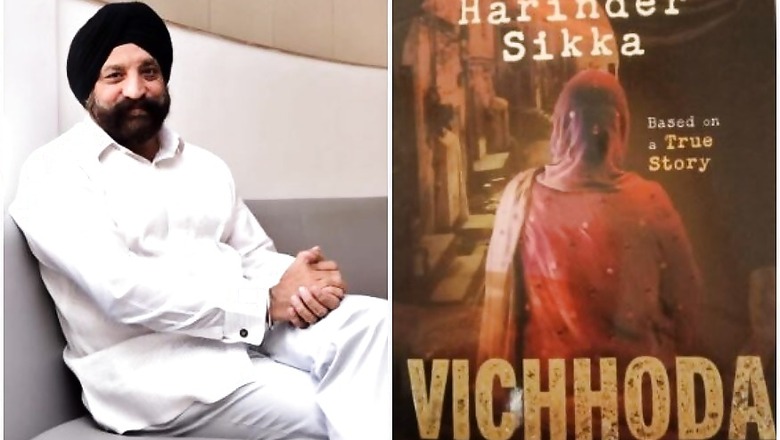
views
Harinder Sikka had a grand entry in Bollywood as the writer of Calling Shemat, the base of Alia Bhatt-starrer Raazi. His new book Vichhoda has hit the stands now, and has already been committed to a studio.
We caught up with him and talked about the different aspects of his life. Here’s what he said.
Q: You were a corporate person before turning writer...
I come from a humble background and I joined the navy in 1979, and left prematurely in 1993. I joined the Piramal group in 1994 and today I am the group director. I also participated in the Kargil battle of 1999 as an embedded journalist.
Q: What do you mean by humble background?
I grew up in Delhi in the vicinity of Sabzi Mandi. My parents and grandparents came from Pakistan after we lost everything there. We were living under a tin roof in trying circumstances. Later, I graduated from the Delhi University and soon after joined the Navy.
Q: Was growing up in Delhi difficult for you?
I was perpetually hungry. I could eat a horse at times and still be hungry. I would get Rs 30 as pocket money in college which I would spend within five days. For rest of the month, all I had was a bus pass. Such times tell you that you can only rise from here.
During my childhood, I used to go to a Gurdwara. The bhaiji used to give me Prasad, and I would take 2-3 helpings. One day, I came back home and said ‘Guru Teg Bahadur, assi mariye.’ My mother was furious and she took me back to Bhaiji and asked ‘what are you teaching my son?’
Bhaiji smiled and said, ‘your son stammers and he is saying Guru Teg Bahadur simariye’ (O Teg Bahadur, bless me to remember the lord). But then he said ‘if he learns how to die then he will learn to live.’ That teaching remained with me in life.
Q: I have heard that you believe in signs like you try to make sense of the incidents. Though I am not sure what exactly that means.
When I was participating in the battle theatre, I was abusing the traitors with choicest of words. Suddenly, an officer stands up and says that my mother wasn’t a traitor. He was drinking and so was I. His tone forced me to think, and then I started researching. It took me eight years to come to a starting point.
Q: So, this is how Calling Sehmat came into existence?
Patanjali said you’re what your deep desire is. Somewhere in my subconscious, I was fed this. I was seeking a teacher and I found Sehmat. I would write a 4000 word chapter and she would cut it to 1000. It took me eight years to write Calling Sehmat.
Q: Can you elaborate a bit on ‘catching the sign’ part?
Once a Bollywood director came and asked for the rights of the book in 2008. I quoted an exorbitant price but he later agreed on it. I asked him if he was going to change the narrative and he said yes. Then I denied selling the rights. He told me he could still use it and not give me any credit. I went to the owners of the company he was working with complained? Within weeks, I received an apology letter from the director. So all these things happen because of a force overlooking and protecting me.
Q: But this could have happened with any writer!
I don’t think so. Some years ago, one of the senior staff of our group was kidnapped in Gwalior, MP. Courtesy Sehmat, I went to meet the kidnappers. My mobile phone was disconnected by the service provider for non-payment of a small amount. I was put under the lights and face to face with the kidnappers, and what did I tell them?
I said ‘you have 24 hours to release my man or you won’t see the light of the day in next 48 hours.’ While leaving I told them ‘let me know if you wish to shoot me, I will turn towards you.’ Next day, they released the person. I heard they kept asking around ‘who was that sardar?’
Q: Isn’t that like reading more than what is there?
Many years back, I had written an article about the scarcity of spurious drugs in India and how the ministers go abroad for therapy on exchequers’ money. This was despite me being a senior staff in a prominent pharmaceutical company. I was summoned by a central minister. When I reached his office, all the chairs were taken out so that I couldn’t sit. I was asked to write an apology letter. I told him that I stand by what I wrote.
I was mentally writing my resignation while descending the stairs at north block but my chairman asked me to not worry. I received a message from Sehmat that said ‘well done.’
Would you believe the minster was gone within weeks! I was summoned again but this time I was given a chair and treated well. The government decided to remove all taxes from life-saving drugs. Again, I received a message from Sehmat that said ‘well done.’
One day, Sehmat asked me to go to Nueara Eliya (in Sri Lanka) and play golf. I didn’t even know where that place was but I went. Later, I learnt that the mythical place where Sita Ji was kept by Raavana was nearby. I instantly knew why I was sent. Monkeys there have black tails. They attack you if you don’t come back by sunset. I was attacked too. But they stop if you say ‘Ram.’ Then I made a documentary ‘Mil Gaye Ram’ for a news channel. When a PIL was filed in the Supreme Court calling Ram a myth, I went there with proof.
Q: I don’t know how to react.
Is it by coincidence that I get a comment from Jeffery Archer?
I don’t know how to take good pictures but the film I made, Nanak Shah Fakir, went to Cannes, LA, Toronto. The President of India called for a special screening. It won three national awards. It went to Richard Gere and other celebrities in Hollywood. How did that happen?
Would you believe that Calling Sehmat was published in 2008 by another publication? Is it possible otherwise for such a book to be accepted by another publication ten years later?
Q: Yet, you never disclosed Sehmat’s identity.
She is a sort of inspiration, and she didn’t want to be known.
Q: You were also not happy with the film, Raazi, based on your book.
Yes, and I am hurt. You see Sehmat comes back by air, in this case by road, which is fine, it’s the creative liberty. In the book, she sees the tricolor on a building and a little band is playing for her, I think ‘Jai Bharati’. Sehmat bows down and says ‘thank you for having me back mother.’ She stands and salutes and the bandmaster plays Jan, Gan, Man. The film should have ended there.
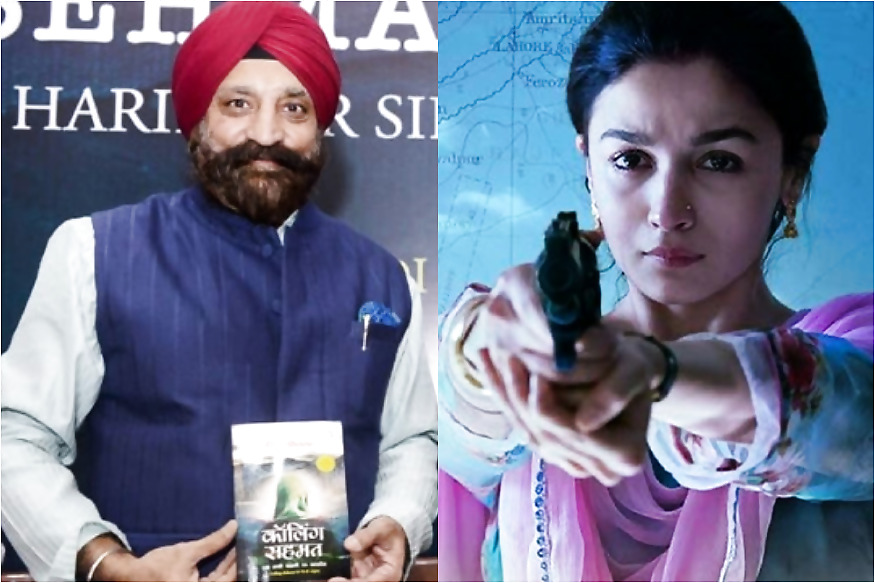
I had promised Gulzar that I will take Meghna as director. I also asked for Alia Bhatt as the lead actor. I objected to the screenplay too. I wasn’t invited to the pre-release screening of the film. I learnt about the event after the film’s release. I received a message from Alia asking how did I like the film? She is a sweet girl and this film wouldn’t have been a hit without her. Sehmat went into depression much later but the makers ended the film there. It changed the fabric of the story. This leftist approach killed it.
Q: How did Vicchoda come into existence?
Again, Sehmat was the inspiration. Here’s a woman who fought against a burly cop and brings him down. She then repents and asks the god ‘which path are you putting me on.’
When I was doing Skype interviews with her sons I didn’t see a Sikh mother with Muslim children. It wasn’t a conversation about religion but their mother. Vichhoda is a story that can move the toughest of people, but this time, I will be careful in selecting the makers.
Follow @News18Lifestyle for more










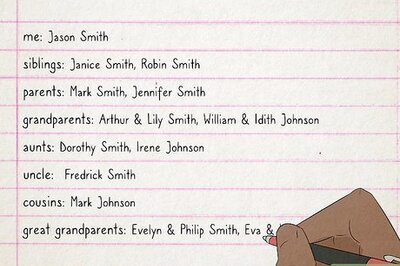

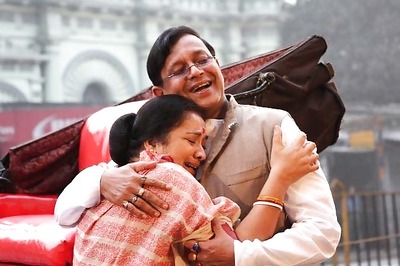


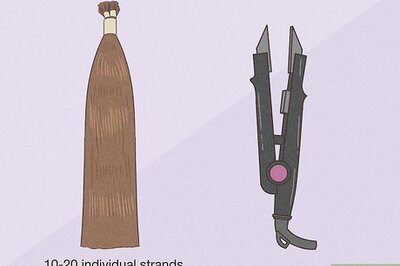


Comments
0 comment